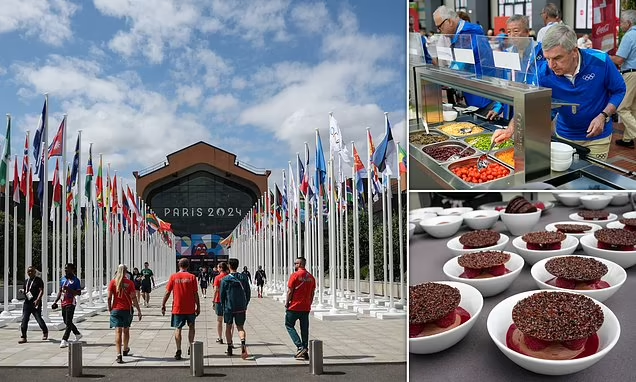The Paris 2024 Olympics has been hit by a food shortage just one day before the opening ceremony. This unexpected issue has raised concerns about athlete nutrition and the overall preparedness of the Olympic Village to cater to the needs of thousands of competitors from around the world.

According to reports from L’Equipe, a respected French sports newspaper, vital food items including eggs and grilled meats had to be rationed during breakfast at the Olympic Village on Wednesday. This has led to a wave of complaints from athletes who found themselves served with portions reminiscent of Oliver Twist’s meager meals, a far cry from the nutritious fare they require to fuel their Olympic performances.
The egg shortage has been particularly problematic, given the importance of eggs in many athletes’ diets. Eggs are prized for their high protein content, healthy fats, and a variety of essential nutrients and minerals crucial for athletic performance. The rationing of this staple food item has left many competitors concerned about their ability to maintain their strict nutritional regimens during the Games.

In response to the outcry, Sodexo Live, the official catering partner for the Olympic Village, has acknowledged the issue and promised swift action. A spokesperson for the company stated, “There’s a very high demand (for products) and volumes will be increased to satisfy the needs of the athletes.” This commitment to addressing the shortage highlights the urgency of the situation and the importance of proper nutrition for Olympic competitors.
Carrefour Group, responsible for supplying fresh products to the Village, has also stepped in to address the shortage. They confirmed, “It was requested to revise upwards the quantities initially planned, which the group will be able to satisfy.” This assurance suggests that the supply chain is being rapidly adjusted to meet the unexpected demand.
The scale of the catering challenge at the Olympics is staggering. Organizers are tasked with feeding approximately 15,000 athletes from 208 countries several times a day. This figure doesn’t include the numerous staff members, officials, and volunteers also working in Paris, further highlighting the logistical complexity of the operation.

Despite these challenges, the Paris Olympics has ambitious goals for its catering services. The menu boasts over 500 different recipes spanning six cuisines, including Asian, French, and Afro-Caribbean options. This diverse offering is designed to cater to the varied tastes and dietary requirements of athletes from around the globe.
In line with sustainability objectives, the Paris hosts have committed to reducing the carbon footprint of Olympic meals by half compared to previous Games. A third of all food provided is plant-based, while meat, eggs, and milk are sourced exclusively from France. Additionally, a quarter of all ingredients used in Paris have been brought in from within a 250km radius, with 20 percent certified as organic. These initiatives demonstrate a commitment to environmental responsibility alongside athletic excellence.

As the Games are set to begin, all eyes will be on the Olympic Village to see if these food supply issues can be resolved quickly and effectively. The ability of organizers to overcome this last-minute hurdle will be crucial in ensuring that athletes can perform at their peak throughout the competition.
The food shortage incident serves as a reminder of the complex logistical challenges involved in hosting an event of this magnitude. It also underscores the critical importance of nutrition in elite sports, where even small disruptions to an athlete’s diet can potentially impact their performance on the world stage.
As athletes, officials, and organizers work to address this unexpected challenge, the world waits to see how it might affect the opening days of what promises to be an exciting and memorable Olympic Games in the heart of Paris.
the-sun.com



